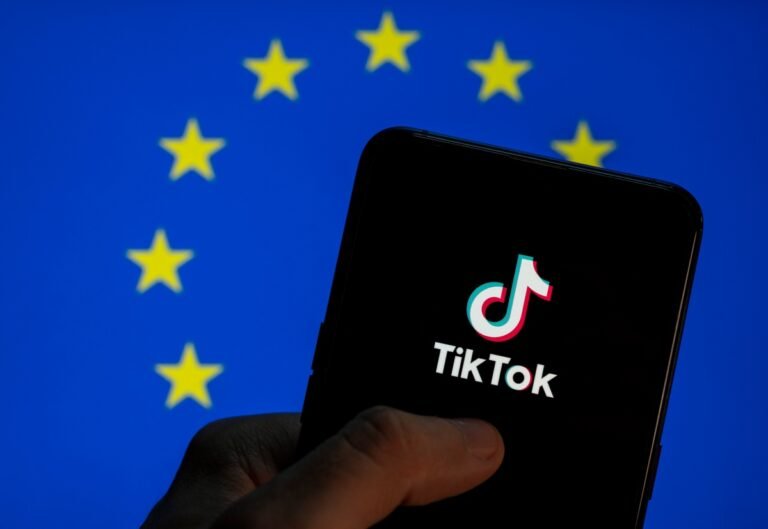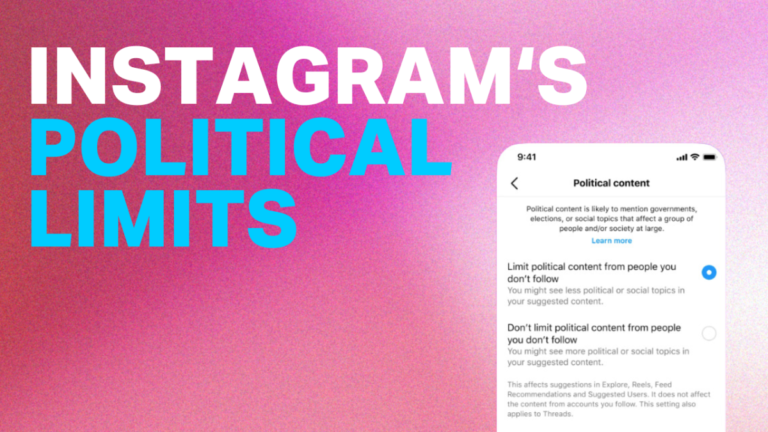
India’s election overshadowed by the rise of online misinformation Greater internet penetration and the rise of "cheapfakes" since the last general election in 2019 pose new challengesAs India kicks off the world’s biggest election, which starts on April 19 and runs through June 1, the electoral landscape is overshadowed by misinformation.
Misinformation is not just a problem for election fairness — it can have deadly effects, including violence on the ground and increase hatred for minorities.
“Ever since social media has been thriving, there is a new trend where you use misinformation to target communities,” he said.
The country’s vast diversity in language and culture also make it particularly hard for fact-checkers to review and filter out misleading content.
Moreover, just before the Indian election, Meta reportedly cut funding to news organizations for fact-checking on WhatsApp.

The European Data Protection Board (EDPB) has published new guidance which has major implications for adtech giants like Meta and other large platforms.
The guidance, which was confirmed incoming Wednesday as we reported earlier, will steer how privacy regulators interpret the bloc’s General Data Protection Regulation (GDPR) in a critical area.
The full opinion of the EDPB on so-called “consent or pay” runs to 42-pages.
However a market leader imposing that kind of binary choice looks unviable, per the EDPB, an expert body made up of representatives of data protection authorities from around the EU.
“Online platforms should give users a real choice when employing ‘consent or pay’ models,” Talu wrote.

The EU’s latest concerns about TikTok’s DSA compliance center on the launch of TikTok Lite.
TikTok has been given 24 hours to provide the risk assessment for TikTok Lite.
It’s not clear whether TikTok conducted a DSA risk assessment for the new reward program ahead of launching TikTok Lite in the two EU markets.
But the regulation’s focus on systemic risk essentially makes such a step obligatory for features that are likely to appeal to minors.
TikTok did tell us it requires TikTok Lite users to verify that they are 18 or older in order to collect points through their use of the app.

The round values the company at €100 million ($107 million), post money.
But finmid believes it has the potential to lock in more business specifically in its home region.
Unlike a bank, Wolt has access to the restaurants’ sales history, and finmid helps it leverage that data to decide who will see a pre-approved financing offer.
The working capital doesn’t come from Wolt, but from finmid’s financing partners.
For a platform like Wolt, embedding finmid is a way to make life easier for restaurants while generating additional revenue without much additional effort.

Efforts by tech giants to be more transparent about the ads they run are — at very best — still a work in progress, according to a report looking at ads transparency tools.
The report’s top-line conclusion is that platforms’ ad oversight tools are falling short of delivering the intended transparency and democratic accountability in a critical year for elections globally.
Judging by the report findings, something similar may be playing out in platforms’ early responses to DSA demands for ads transparency.
“Major gaps”They do note there has been some developments since they carried out their transparency tools tests.
But, as the report suggests, it’s all too easy for platforms to inject intentional friction into transparency tools, whether by restrictive design or sloppy implementation or both.

After 10 weeks of being absent from the platform, Taylor Swift’s music has returned to TikTok — or at least her more recent songs and “Taylor’s Version” cuts, since she owns those masters.
Taylor Swift’s music, and music from all artists signed to Universal Music Group, was pulled from TikTok when the two parties were unable to come to a renewed licensing agreement.
UMG framed its refusal to come to a deal with TikTok as a means of standing up for emerging artists.
By selectively removing the music of certain of our developing artists, while keeping on the platform our audience-driving global stars,” UMG wrote.
Her “Taylor’s Version” recordings are back on TikTok, but songs from records like “Reputation,” which doesn’t yet have a “Taylor’s Version,” are still absent from the platform.

It’s easy to assume the e-commerce ship has sailed when you consider we have giant platforms like Shopify, Woocommerce, and Wix dominating the sector.
E-commerce platform, ikas, has raised $20 million in a Series A funding round as it seeks to expand its operations into new markets in Europe.
The company currently operates in Turkey and Germany, and says its platform simplifies store management for companies that want to have a digital presence.
Also investing in ikas is Re-Pie Asset Management, which has grocery delivery startup Getir in its portfolio as well.
The round saw participation from ikas’ existing investor Revo Capital, best known as the first institutional investor in Getir, Param, Midas and Roamless.

Bitkraft Ventures — a games investor based out of Denver, Colorado, but with European founders — has raised its third fund, coming in at $275 million.
The fund will make seed and Series A investments in gaming studios, and platforms to support game production.
The moves comes at a time when games investments have actually declined 72 per cent year on year, according to a recent Pitchbook report.
Founded by games industry veteran Jens Hilgers, Bitkraft has over 130 companies in its portfolio, and more than $1 billion in assets under management.
Perhaps the best way of positioning Bitkraft is to compare it to Play Ventures in Singapore which has raised $222.9M across 4 funds, but also invests across several types games platforms.

As the election cycle heats up, Instagram and Threads will be cooling down the amount of political content entering many users’ feeds.
These changes, which limit the reach of political content from accounts users don’t already follow, are enacted by default.
If you’re already wondering how to get that kind of content back into your feed, you can follow our guide on changing Instagram’s political settings here.
Threads will host, but not “amplify” news, per remarks from its head Adam Mosseri’s last year.
And what posts and topics will Instagram actually deem to be political?

It’s election season in the U.S., and Instagram has changed the way that it recommends political content.
But the platforms won’t proactively recommend content about politics, which could limit users’ ability to learn about political issues from people outside of their existing circles.
Plus, Instagram’s definition of political content is a bit broad — it describes political content as anything “potentially related to things like laws, elections, or social topics.”If these changes bother you, you can adjust your settings to override Instagram’s political content filters.
Changing Instagram’s political content settingsIf you don’t want Instagram to filter out political content from your feed, here are steps to opt out of these changes.
Limiting political content is going to have a ripple effect.













